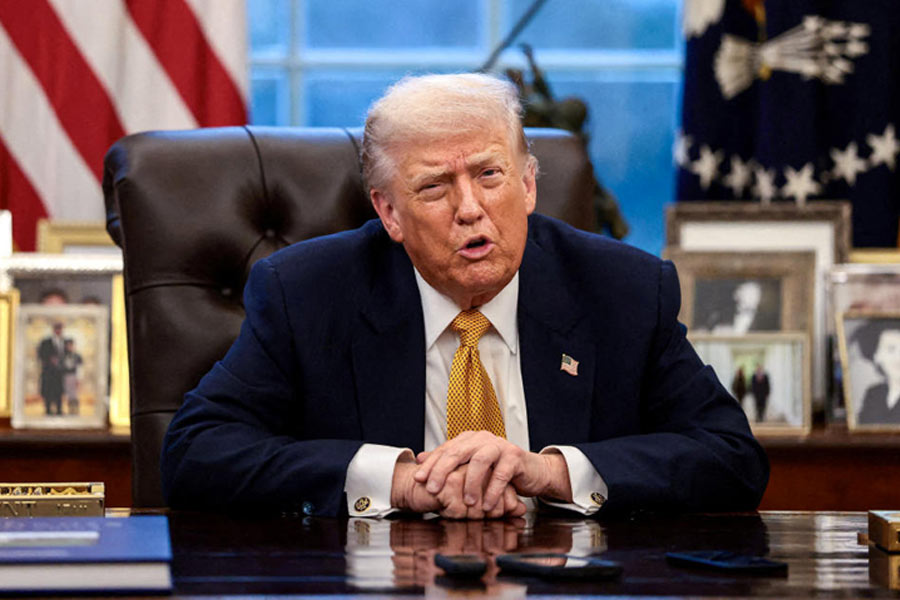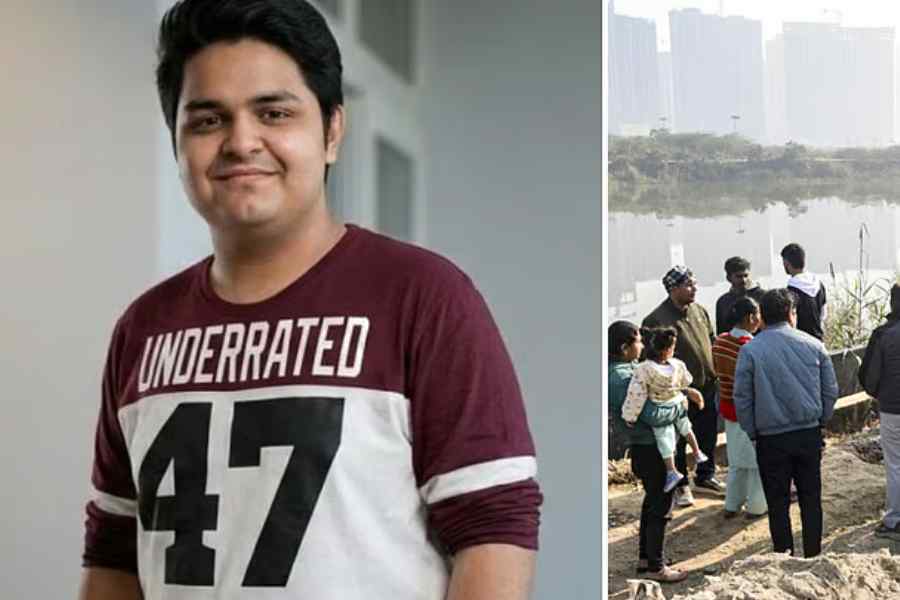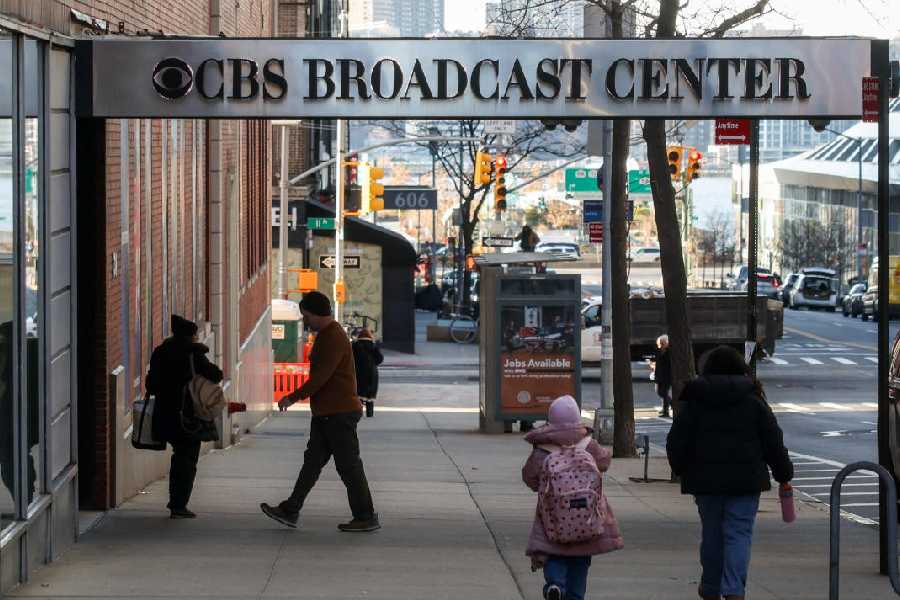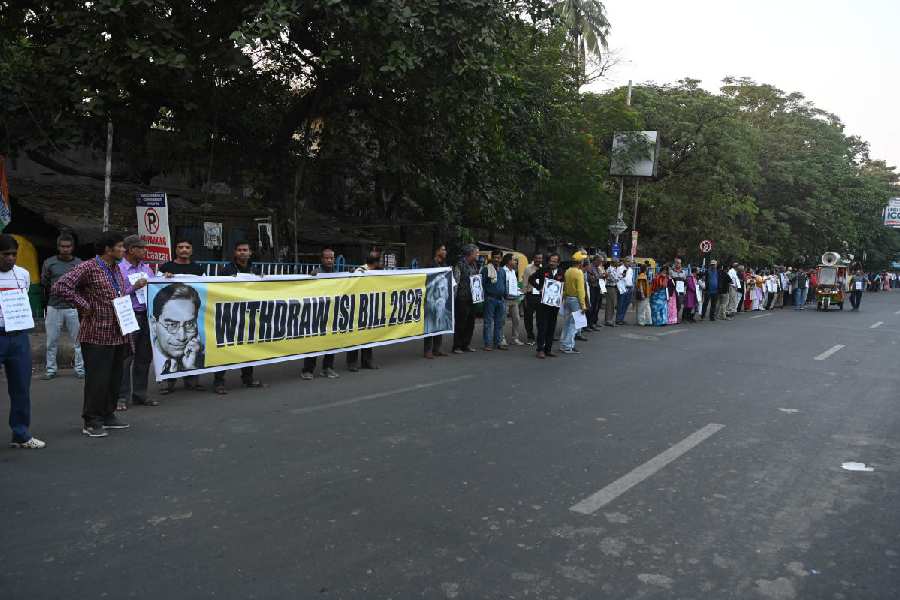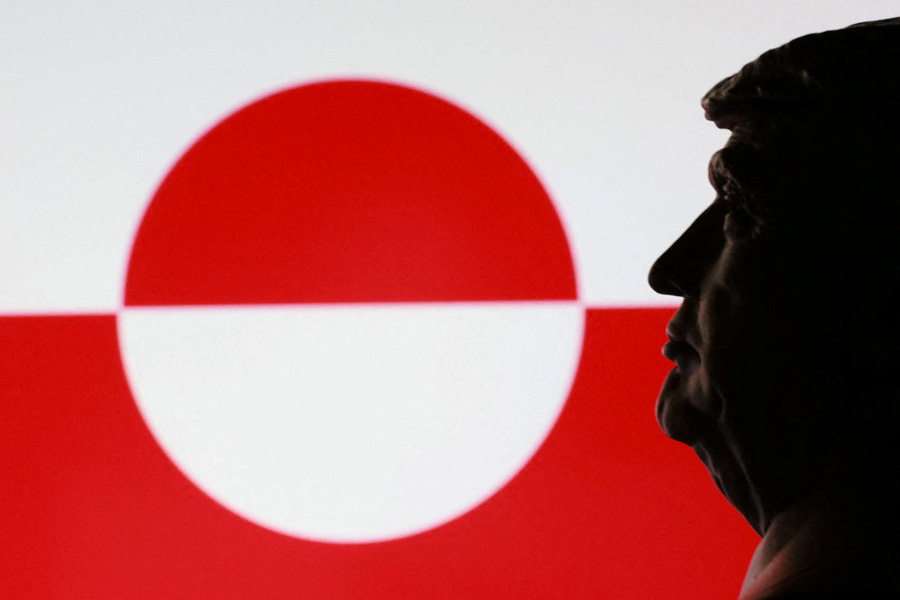Situation vacant: Enlist yourself and you get to be addressed "your excellency" in a place ruled by the "Shining Sun" and where "stores are brimming with products and people in the streets look cheerful" because of the Supreme Leader.
Translation: Do you have it in you to serve as ambassador to North Korea, the hermit nation with no access to the World Wide Web, little social life and constant supervision?
New Delhi, July 24: Since no officially eligible candidate in India's foreign service has volunteered for the assignment, the Narendra Modi government has appointed a veteran Chinese interpreter as the ambassador in Pyongyang, the seat of the most reclusive regime in the world.
Jasminder Kasturia, the ambassador-designate, is rated highly by diplomats of the elite IFS 'A' cadre - a band of less than 20 picked each year from among the toppers of the civil services examinations - and academicians who have worked with her.
But her appointment marks the first time India has failed to find officers from even the IFS 'B' - a cadre of stenographers, assistants and reserve diplomats who can be promoted to the main corps - for its top job at the mission in Pyongyang, senior officials said.
Kasturia belongs to the "interpreter cadre," a group of officials that works with IFS officers in translating documents and with top political leaders when they travel abroad.
Diplomats blamed the inability of the external affairs ministry to find a regular IFS officer on the absence of personal freedoms in North Korea.
Smaller-than-usual batches of the IFS 'A' that today hold posts of the rank of director - the minimum designation at which an officer can be appointed ambassador - have also offered greater choices to diplomats and helped them avoid destinations like North Korea.
But, officials concede, the lack of interest among foreign service officers in a Pyongyang posting highlights India's sharply reduced interest in North Korea from the 1950s when Jawaharlal Nehru offered to broker peace with South Korea.
"I think we could really benefit in various ways if we gave it (North Korea) a little more importance," Vyjayanti Raghavan, professor of Korean studies at Jawaharlal Nehru University, said. "It is a resource-rich country, with loads of coal, bauxite and other minerals. Also, if we want to break North Korea's axis with China and Pakistan, building a relationship with them will help."
Raghavan was referring to North Korea's supply of missile technology to Pakistan, which, through discredited scientist A.Q. Khan, is believed to have provided clandestine nuclear weapons technology in return to Pyongyang. China remains a common benefactor to North Korea and Pakistan.
After the heady days of non-alignment in the 1950s, India's relations with North Korea took a hit when Pyongyang began strategic collaboration with Islamabad in the 1980s.
But it was in the 1990s, when South Korea became the first major nation to invest in post-reforms India, that New Delhi's tilt towards Seoul became more pronounced.
As North Korea's isolation deepened by the turn of the century, so did the Indian foreign office's struggle to find willing candidates for the post of ambassador to that country. From 2002, all Indian ambassadors to North Korea till now have been IFS 'B' officers - Kasturia will replace Ajay Kumar Sharma, a stenographer.
But Kasturia is the first member of the "interpreter cadre" that is not a part of either the IFS 'A' or the IFS 'B' -- according to the ministry of external affairs service rules -- picked for the post in Pyongyang. She was not available for comment for this report.
To an extent, her appointment deepens cracks in an informal "caste system" within the foreign office, where IFS officers have traditionally received career opportunities, including ambassadorial positions, not available to interpreters with the same pay.
Members of the interpreter cadre cannot be promoted above the rank of director, unlike IFS officers who can rise to joint secretary, additional secretary or secretary posts.
Kasturia, a director -level officer currently working with the Indian Council for Cultural Relations (ICCR), is among only a handful of members from the interpreter cadre who have ever headed Indian missions overseas.
She served as interpreter at the Indian embassy in Beijing for 17 years from 1993 to 2010, before joining as press counsellor at the Indian High Commission in London -- experiences that fellow interpreters say underscore her abilities to serve as ambassador.
"Working for decades with the ministry of external affairs, we learn exactly the same things that normal IFS officers do, and in fact, we bring language skills to the table too," Zikrur Rahman, veteran Arabic interpreter and the first member of the interpreter cadre to be posted as head of an Indian mission, told The Telegraph . "There was a time a few years back when there was a deep grievance and resentment within the IFS community if an interpreter became an ambassador, but we had to fight it, and things are better now."
Rahman served as Representative of India in Ramallah, Palestine, from 2005 to 2008. In 2012, India appointed T. Suresh Babu, a Russian translator from the interpreter cadre, as ambassador to Armenia and Georgia.
Decades before the interpreter cadre was created in 1984, Nehru had made Vasant Paranjpe, who served as interpreter in the first Prime Minister's historic conversations with Zhou Enlai in 1954, ambassador to China.
But Babu's appointment had sparked criticism from sections of the IFS community, and officials of higher grades within the IFS 'B' contested Sharma's appointment as ambassador to North Korea, also in 2012.
For Kasturia, the appointment comes at a time when an increasingly lonely North Korea appears to reaching out to India again, presenting Delhi with an opportunity to end the stagnation in ties.
North Korean leader Kim Jong-Un sent his foreign minister Ri Yu Song to New Delhi in April -- the first-ever visit by that country's foreign minister to India.
"They are keen to tap into India's potential as an emerging nation," Raghavan said. "The present leadership of North Korea is trying to undertake some economic reforms, though naturally, very controlled. And India to them seems one of the countries they can approach."


